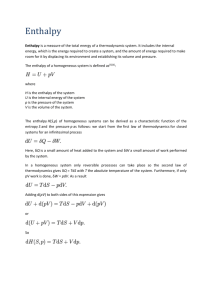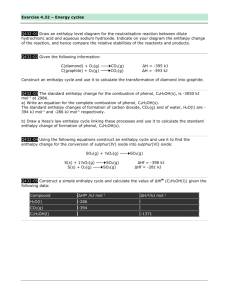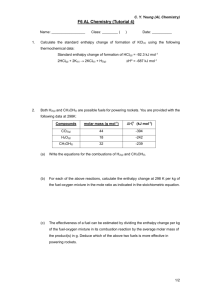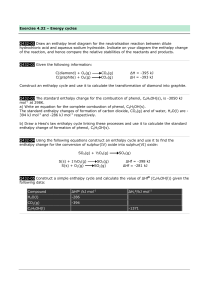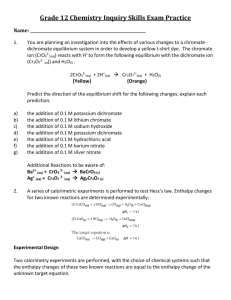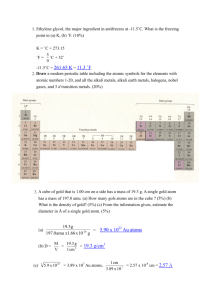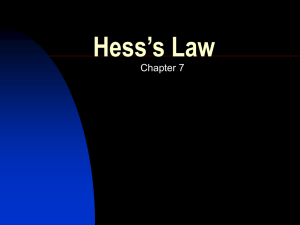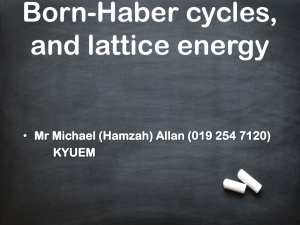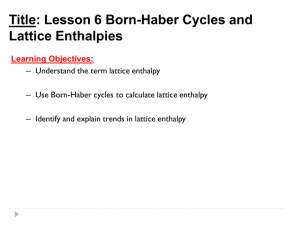Lattice enthalpies
advertisement
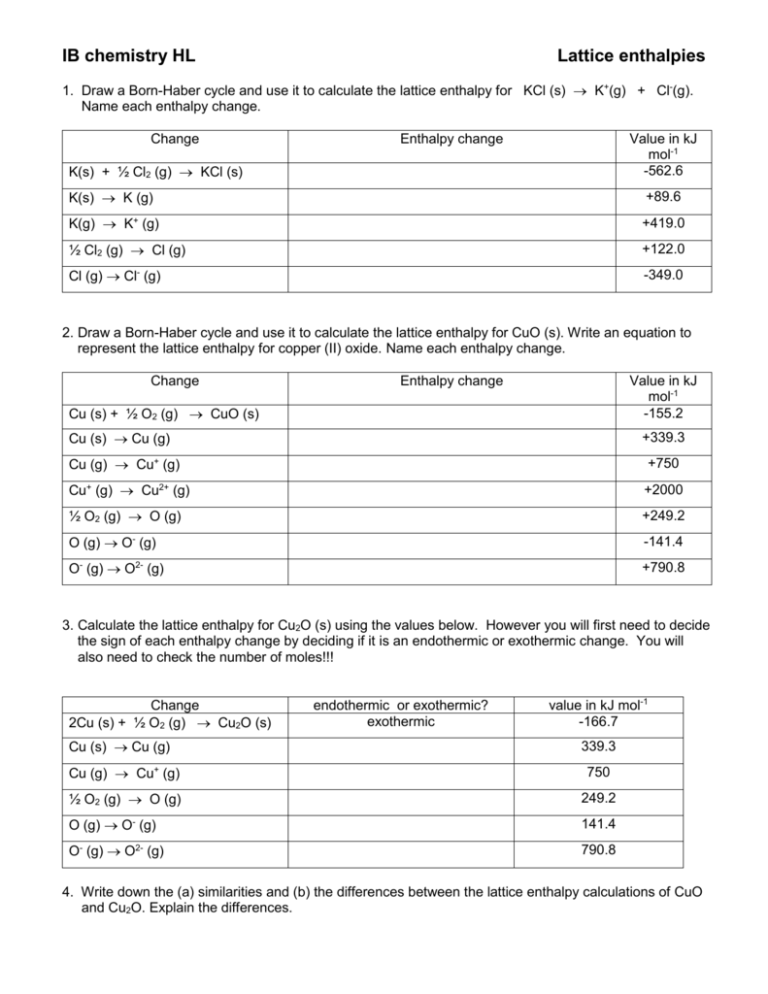
IB chemistry HL Lattice enthalpies 1. Draw a Born-Haber cycle and use it to calculate the lattice enthalpy for KCl (s) K+(g) + Cl-(g). Name each enthalpy change. Change Enthalpy change Value in kJ mol-1 -562.6 K(s) + ½ Cl2 (g) KCl (s) K(s) K (g) +89.6 K(g) K+ (g) +419.0 ½ Cl2 (g) Cl (g) +122.0 Cl (g) Cl- (g) -349.0 2. Draw a Born-Haber cycle and use it to calculate the lattice enthalpy for CuO (s). Write an equation to represent the lattice enthalpy for copper (II) oxide. Name each enthalpy change. Change Enthalpy change Value in kJ mol-1 -155.2 Cu (s) + ½ O2 (g) CuO (s) Cu (s) Cu (g) +339.3 Cu (g) Cu+ (g) +750 Cu+ (g) Cu2+ (g) +2000 ½ O2 (g) O (g) +249.2 O (g) O- (g) -141.4 O- (g) O2- (g) +790.8 3. Calculate the lattice enthalpy for Cu2O (s) using the values below. However you will first need to decide the sign of each enthalpy change by deciding if it is an endothermic or exothermic change. You will also need to check the number of moles!!! Change 2Cu (s) + ½ O2 (g) Cu2O (s) Cu (s) Cu (g) endothermic or exothermic? exothermic value in kJ mol-1 -166.7 339.3 Cu (g) Cu+ (g) 750 ½ O2 (g) O (g) 249.2 O (g) O- (g) 141.4 O- (g) O2- (g) 790.8 4. Write down the (a) similarities and (b) the differences between the lattice enthalpy calculations of CuO and Cu2O. Explain the differences. 5. Calculate the standard enthalpy of formation of NaCl (s) Change Enthalpy change NaCl (s) Na+(g) + Cl-(g) Value in kJ mol-1 +790.0 Na(s) Na (g) +108.4 Na(g) Na+ (g) +495.8 ½ Cl2 (g) Cl (g) +122.0 Cl (g) Cl- (g) -349.0 6. Draw a Born-Haber cycle and calculate the lattice enthalpy for Al2O3 using the values below. Change 2Al (s) + 1½ O2 (g) Al2O3 (s) Al (s) Al (g) Enthalpy change Value in kJ mol-1 -1675.7 +324.3 Al (g) Al+ (g) +578 Al+ (g) Al2+ (g) +1817 Al2+ (g) Al3+ (g) +2745 ½ O2 (g) O (g) +249.2 O (g) O- (g) -141.4 O- (g) O2- (g) +790.8 Answers: 1. 888.2 kJ mol -1 2. 4143 kJ mol -1 3. 3243.9 4. similarities 5. 412 6. 15916 differences
